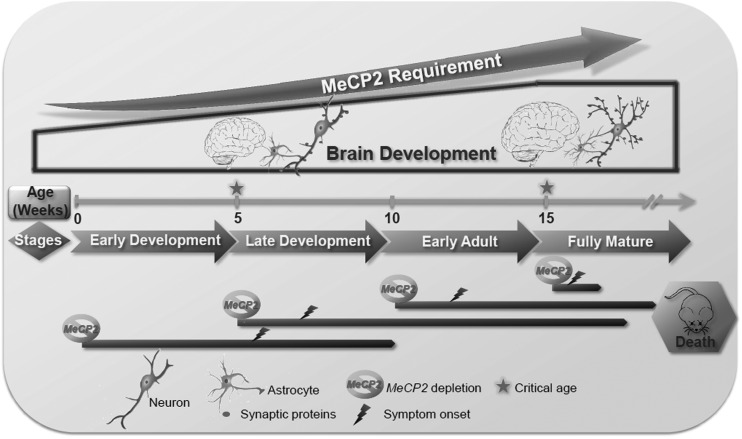Figure 8.
Schematic model describing the essential function of MeCP2 during postnatal developmental stages. During normal postnatal development, neurons as well as and astrocytes mature, evident by increasing dendritic complexity and synaptogenesis concomitant with increased expression of specific synaptic proteins. Our studies and those of others (1,5,6,15–17) indicate that germline (classic RTT) and conditional postnatal loss of MeCP2 at late juvenile (5 weeks), early adult (10) or even advanced adult stages (15 weeks or later), all result in severe RTT-like phenotypes and premature lethality in male mice, and the brain acquires similar anatomical and cellular abnormalities. However, while the loss of MeCP2 at germline, 5 and 10 W stages result in symptoms with a latency of weeks, the loss of MeCP2 at more advanced adult stages (15 W or later) reduces latency to only a few days, along with a reduction of brain weight, regression of dendritic arborization and astrocyte process complexity, and reduced levels of essential synaptic proteins. Thus, we propose two critical time points for the MeCP2 function during postnatal development of the brain: (i) 5 weeks of age, corresponding to the symptom onset in the classic RTT due to germline mutations, or by induced loss of MeCP2 between 5 and 10 weeks of age, corresponding to gradual (within weeks) symptom onset, and (ii) 15 weeks of age or later when the absence of MeCP2 affects immediately and severely the mature brain structure and function leading to severe RTT symptoms premature lethality within few days.

